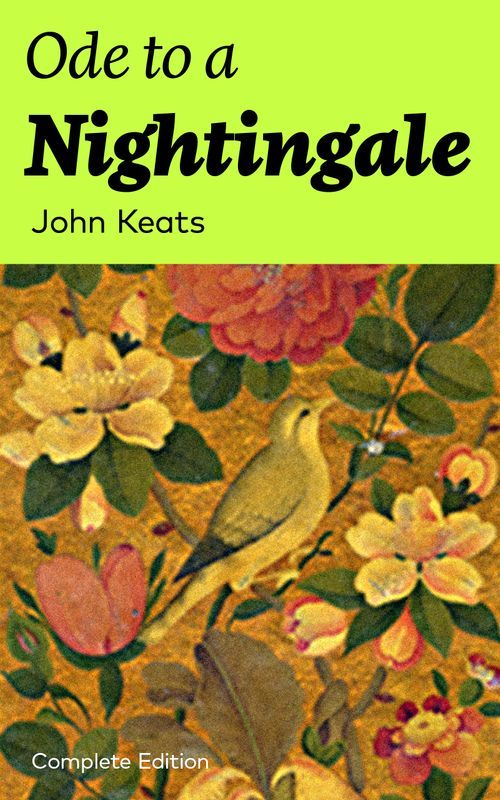Ode To A Nightingale By John Keats
Jun 29, 2019 • 82 views

John Keats, born in 1795 in London, is probably one of the most beloved poets of all times. In the Romantic poetry, his odes are considered to be great achievements where the self is seen in a tireless quest for perfection and gets closest to finding it in 'To Autumn' where it is completely able to dissolve into the environment it inhabits. Both of his poems, 'Ode to A Nightingale' and 'To Autumn' ends on the note of death.
From the "Ode to A Nightingale" we get to know his way of evaluation of life. He knew that he is going to die soon as he was suffering from tuberculosis and there was no treatment of it, at that time. So he started this ode by the sense of pain and sorrow and he is in so much pain that he is not even able to feel. He is numb. The happiness which Keats hears in the Nightingale's song provides him happiness, momentarily. The Nightingale's song was also an escape from reality, his bitter truth of life. Through his poem, he wants to be immortal as Nightingale's song is. He wants his poetry to get merge with its voice. This poem is the contrast between the painful mortality that defines human existence and the immortal beauty found in the carefree song of Nightingale.
In the essay, Nightingale and Melancholy by Jeffrey Bakee highlights that the ode is great by the fact that the problems are all debated subterraneously, in the conflicting implication of the imagery, the nuances of diction and phrasing and even in the rhythm of punctuation. The first six stanzas of the ode are intense, painful meditation on these opposites in spite of momentary springs of vitality and joy, toward despair. But in the last stanza, he himself breaks the emotional intensity that he made in the last lines.
In the most dejected state in Keats life, Nightingale gives him hope. Keats knows that life is full of happiness and sadness. Life has so much to give. He wants to live more as he knew that he was going to die. He is not satisfied with his life, he wants to take everything from it. We see the urge of living life in John Keats.
This ode laments the loss of life, the transitoriness of our life. Through these lamentations, we also get to see the poet glorifying immortality. He talks of death, life's pain and numbness. He talks about how the beauty created by Nightingale is immortal.
In the last stanza, he changes his tone and now he is in the most dejected state. But still, Nightingale gives him hope. He realizes that he's lost. "Deceiving elf"- Nightingale deceives poet, everything is happy around him but Nightingale's song is fading. He breaks the emotional intensity that he created. "Do I wake" - uncertainty is completely odd to be lost. We can interpret that he says it's okay to be in doubt.
